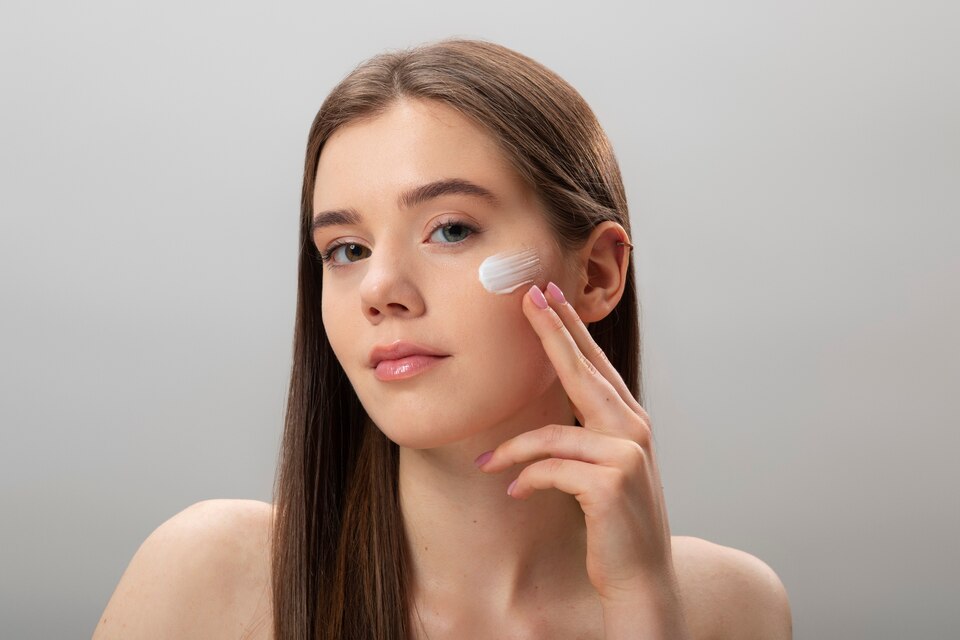Sensitive skin is a common concern for many individuals, characterized by a heightened reaction to various skincare products, environmental factors, and even certain foods. For those with sensitive skin, daily skincare can be a balancing act of finding products that cleanse, nourish, and protect without triggering irritation, redness, or discomfort. The skincare industry has witnessed a surge in products labeled for sensitive skin, but navigating through the noise to find real solutions can be overwhelming. Understanding the key factors that influence skincare for sensitive skin is essential for achieving long-term, tangible results. In this article, we will explore the most important elements to consider when creating an effective skincare routine for sensitive skin, along with practical tips that deliver real results.
1. Understanding Sensitive Skin
Before diving into the specifics of skincare, it’s important to first understand what sensitive skin is and why it reacts the way it does. Sensitive skin can be triggered by various factors, such as genetics, environmental stressors, allergens, and even certain skincare ingredients. It typically manifests as redness, irritation, itching, burning, or stinging sensations after using products or being exposed to extreme weather conditions, pollution, or UV rays.
The skin barrier plays a critical role in maintaining skin health, and those with sensitive skin often experience a compromised barrier. This weakened barrier makes the skin more susceptible to irritants and moisture loss. The key to managing sensitive skin effectively is to focus on reinforcing this barrier, choosing products that help soothe, hydrate, and protect the skin without causing additional stress.
2. Choosing the Right Cleanser
Cleansing is the foundation of any skincare routine, but for those with sensitive skin, choosing the right cleanser is especially important. Harsh or overly drying cleansers can strip the skin of its natural oils, further impairing the skin barrier and exacerbating sensitivity. Therefore, it’s vital to opt for gentle, non-foaming, fragrance-free cleansers that hydrate and maintain the skin’s natural balance.
Cleansers with a neutral or slightly acidic pH are ideal for sensitive skin, as they help preserve the skin’s protective acid mantle. Look for ingredients such as glycerin, hyaluronic acid, and ceramides, which help to retain moisture without causing irritation. Micellar water or oil-based cleansers can be an excellent choice for sensitive skin, as they cleanse without stripping the skin of essential lipids. Furthermore, it’s essential to cleanse your skin with lukewarm water, as hot water can increase inflammation and disrupt the skin barrier.
3. Incorporating Hydration into Your Routine
Hydration is paramount for all skin types, but it’s especially important for those with sensitive skin. A well-hydrated skin barrier is better equipped to withstand environmental stressors and resist irritation. Therefore, incorporating a hydrating moisturizer into your skincare routine is essential for keeping sensitive skin calm and comfortable.
Look for moisturizers that contain hyaluronic acid, glycerin, or ceramides, as these ingredients attract water to the skin and help to strengthen the skin barrier. Niacinamide is another key ingredient to seek out, as it has been shown to reduce redness, irritation, and inflammation, all of which are common symptoms of sensitive skin. It also promotes the production of ceramides, further enhancing the skin’s moisture retention. For a lighter option, try an oil-free gel moisturizer, which will hydrate without feeling heavy on the skin.
4. Avoiding Irritating Ingredients
One of the most significant challenges for those with sensitive skin is identifying and avoiding irritating ingredients that can trigger flare-ups. Fragrances, both synthetic and natural, are among the most common culprits, as they can cause allergic reactions or irritation. When choosing skincare products, always opt for those labeled as fragrance-free rather than unscented, as unscented products can still contain masking agents that may irritate sensitive skin.
Additionally, steer clear of products containing harsh exfoliants like physical scrubs, which can cause microtears in the skin, and chemical exfoliants such as alpha-hydroxy acids (AHAs) and beta-hydroxy acids (BHAs), which may be too potent for sensitive skin. For gentle exfoliation, consider enzymatic exfoliants derived from fruits like papaya or pumpkin, which provide a milder approach without disrupting the skin’s natural balance.
Avoiding alcohols such as denatured alcohol and ethyl alcohol is also crucial, as these can be drying and irritating. Instead, look for skincare products that contain fatty alcohols like cetyl alcohol or stearyl alcohol, which are moisturizing and non-irritating.
5. Sun Protection Is Non-Negotiable
Sun exposure is one of the leading causes of skin irritation, redness, and long-term damage, especially for sensitive skin. For this reason, daily sun protection is an absolute necessity. A broad-spectrum sunscreen with an SPF of 30 or higher should be a staple in every sensitive skin routine.
When choosing a sunscreen, opt for physical (mineral) sunscreens containing zinc oxide or titanium dioxide, as they form a physical barrier on the skin’s surface and are less likely to cause irritation compared to chemical sunscreens. Mineral sunscreens are often recommended for sensitive skin due to their gentle and non-reactive nature. If you have particularly sensitive or reactive skin, look for sunscreens that are formulated for sensitive skin and are free from irritating chemicals, fragrances, and preservatives.
Additionally, pay attention to the texture of your sunscreen. Gel-based or water-based sunscreens can be lighter and more comfortable on sensitive skin, especially if you have a tendency to get oily or break out in certain areas.
6. Patch Testing New Products
When incorporating new products into your routine, patch testing is a vital step in ensuring that the product is safe for your sensitive skin. To patch-test a product, apply a small amount to a discreet area, such as the inside of your wrist or behind your ear, and wait 24 to 48 hours to see if any redness, irritation, or discomfort occurs. This simple step can help prevent adverse reactions and save you from the frustration of dealing with a breakout or rash.
If you experience irritation during patch testing, discontinue use immediately and opt for more soothing, gentle products. Remember that sensitive skin requires patience and care, so always introduce new products slowly to give your skin time to adjust.
7. Lifestyle Factors Play a Role
In addition to selecting the right products, certain lifestyle habits can also impact the health of sensitive skin. Stress, lack of sleep, and poor diet can exacerbate skin sensitivity, so maintaining a healthy lifestyle is an essential part of managing sensitive skin. Regular exercise can help improve circulation, promote skin health, and reduce stress. Aim for a balanced diet rich in antioxidants, healthy fats, and vitamins, particularly vitamin C and vitamin E, which are known for their skin-soothing and anti-inflammatory properties.
Equally important is getting enough sleep, as the skin’s natural repair processes occur during rest. Adequate sleep can help reduce inflammation and support skin regeneration, ultimately benefiting sensitive skin.
8. Consulting a Dermatologist for Persistent Issues
While at-home skincare can do wonders for sensitive skin, it’s important to consult a dermatologist if you experience persistent irritation, redness, or other issues that don’t improve with over-the-counter products. A dermatologist can help you identify underlying conditions such as eczema, rosacea, or dermatitis, and provide targeted treatment recommendations. In some cases, a dermatologist may prescribe topical treatments or medications to help calm and heal sensitive skin.
Conclusion
Skincare for sensitive skin requires a thoughtful, tailored approach. By understanding the key factors that influence sensitive skin, including the selection of gentle cleansers, hydrating moisturizers, and sun protection, individuals can maintain healthy, comfortable skin. It’s also essential to avoid irritating ingredients, patch-test new products, and adopt a holistic approach that includes stress management and a healthy lifestyle. With patience, persistence, and the right products, it’s entirely possible to see real, lasting results for sensitive skin, restoring comfort and balance without compromise.





